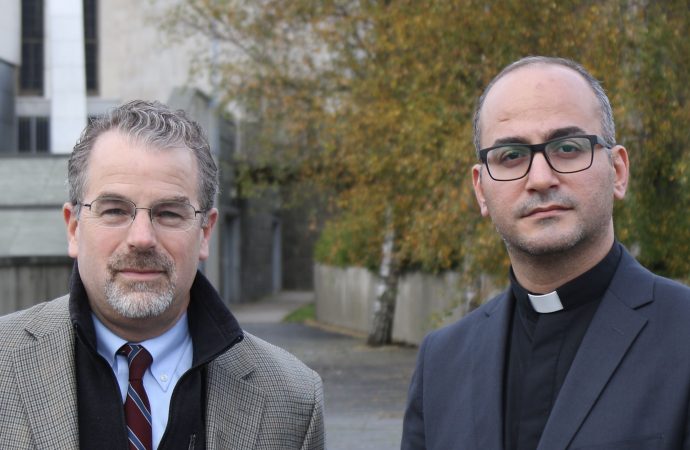NEW YORK – Advocates for Christians in the Middle East are calling for an overhaul of the way humanitarian aid is distributed by western governments and international agencies to those on the frontlines of persecution.
“It’s a model that’s not working and yet the people inside of it insist that it is working,” said Stephen Rasche, Vice Chancellor at the Catholic University in Erbil and Director of the Institute for Ancient and Threatened Christianity, who argues that the current mechanism for distributing aid is fueled by corruption and does not prioritize the people that the aid, in theory, is meant to support.
Rasche, who has worked full time in Iraq since 2015, said that the donors and implementers of aid grants, primarily from the west, operate in a “process driven paradigm” and that the “people who are benefiting supposedly see it as the biggest disaster” and one that is easily corrupted and “skews behavior from desirable ends.”
Since arriving in Iraq at the request of Archbishop Bashir Matti Warda of Erbil, Rasche has served as a liaison to both western governments and private organizations that have pledged support to rebuild the fledgling Christian community in the region.
He told the online attendees that he arrived with “no axe to grind,” but quickly came to the assessment that “this is broken,” with large sums of money being poured into the wrong places and with the people who need it most being denied access.
“The end product of humanitarian aid is the human being,” he said, lamenting the fact that large sums of aid are wasted on processes and systems and very little of it goes directly to communities in need and field experts who know how to best appropriate it.
Those sentiments were echoed by Kent Hill, co-founder and senior fellow for Eurasia, Middle East, and Islam at the Religious Freedom Institute, which sponsored the event.
Hill said that there has been a “reluctance” to trust faith-based organizations to administer assistance on the ground, despite the fact that they are the ones with the best expertise and direct ties to the people.
Western governments need to “get over” being uncomfortable sending aid through faith organizations, he argued, as the assistance is not used for the purposed of evangelizations but rather to rebuild decimated communities.
Both Hill and Rasche noted that there has been a recent “sea change” at USAID, the government’s primary agency responsible for administering aid.
“Christians have been in the Middle East since the day of Pentecost,” said Hill, “and it would be a real tragedy if they disappeared from that important land,” noting that their number has dwindled from some 13 million to, by most estimates, a mere 150,000 that remain today.
Western governments have a vested interest, he argued, in helping to sustain the local Christian population as a fundamental national security matter, as pluralism helps to create a more stable society.
Decline has been steady, serious problems with the delay and focus of aid to Christians and other minority groups, not a niche issue but a fundamental national security matter, as pluralism helps create a more stable society.
Rasche said that in order to keep Christians in their ancient homeland, it requires a renewed understanding of human dignity that is more than just keeping them alive. These individuals, he said, have robbed of their communities, churches, jobs, and homes.
“It robs them of their dignity,” he continued. “All of a sudden, they’re beggars, they’re wards of somebody else, they’re living on the street, they’re deprived of even the basic things that make people human.”
“If there’s going to be any hope for these people to stay here, we have to give them lives that at least approaches dignity,” said Rasche.
Both Hill and Rasche applauded the efforts of private donors whom they said understand that humanitarian aid means “engaging in charity, engaging in mercy.”
“We’ve got to do a better job of helping those stuck in harm’s way,” Hill continued, also highlighting the millions who have fled to neighboring Turkey and Jordan and now find themselves unable to return home or to migrate elsewhere.
Hill noted that there are more refugees today since World War II, many of whom are victims of religious persecution and violence, and they, too, cannot be forgotten.
“There’s no excuse not to do everything in our power to help them survive and thrive,” said Rasche of the Christians at risk in the region.
By: Christopher White
Source: Crux News






